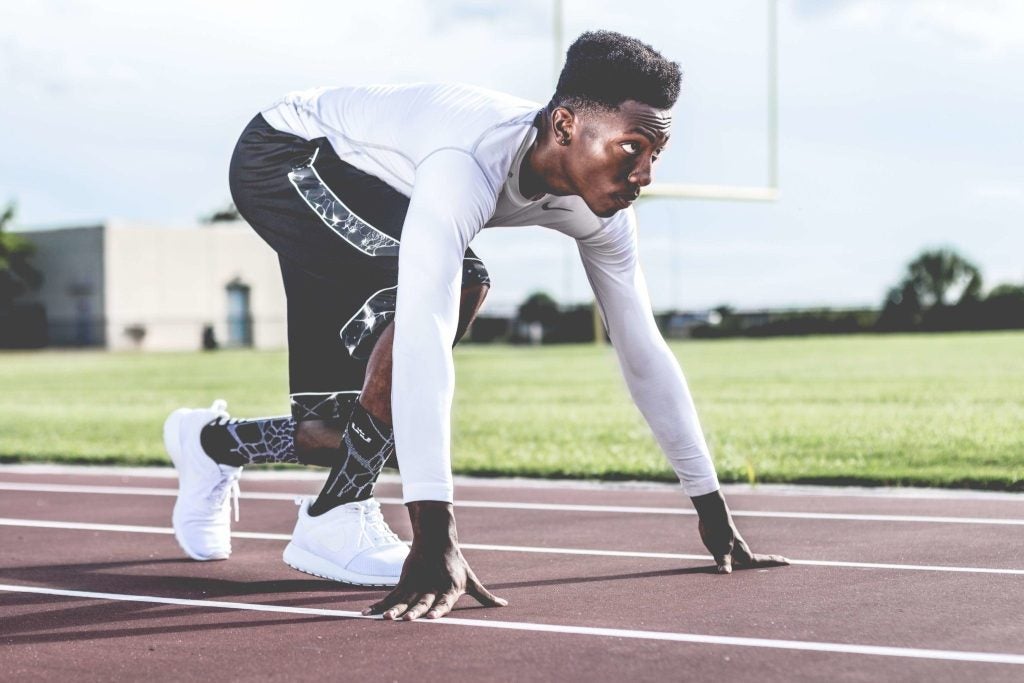
What effect does sex have on athletic performance?
Many athletes insist that having sex before an athletic event has a negative impact on their performance. Boxer Muhammad Ali, for instance, was notably famous for abstaining from sex for several weeks before a match. The rationale behind this is simple: sex oftentimes makes people feel physically and emotionally satisfied, an effect that might take away the motivation and drive necessary to perform well in athletic competitions. As world champion runner Marty Liquori said, “Sex makes you happy. Happy people do not run a 3:47 mile.” This way of thinking seems to assume that libido is a tangible force which can be depleted, which is not a new idea by any means. In George Orwell’s dystopian novel Nineteen Eighty-Four, the Western world is ruled by a totalitarian regime, the Party, which places as many restrictions on sex as possible. One character explains the Party’s strict attitude toward sex by saying, “’When you make love you’re using up energy; and afterwards you feel happy and don’t give a damn for anything. They can’t bear you to feel like that. They want you to be bursting with energy all the time.”1 However, the scientific evidence does not support this view. A meta-analysis of several studies on the topic, published in the Clinical Journal of Sport Medicine in 2000, says that sexual activity does not have an impact on athletic performance.2 One study, done by Dr. Tommy Boone in 1995, measured men’s performance on a treadmill, and found no difference in aerobic power, oxygen pulse, or rate pressure product between men who had had sex twelve hours before and those who had not.3 Another study, published in the Journal of Sex Research all the
way back in 1968, found that men who had not had sex for six days did no better on a strength test than men who had had sex the previous night.4
So, you need not worry about sex the day, week, or night before the game. Sex immediately before an athletic event, however, might be a different story. A study performed by four cardiologists in Switzerland – while confirming that sex several hours before a workout had no effect – suggested that athletic performance might be negatively affected by sex two hours before exercise.5 (Then again, how many athletes actually have sex right before a game?)
Believe it or not, sex does not take up a huge amount of energy. On average, people only burn about fifty calories in a single act of sex, an amount that can be easily replenished.2 Men who are worried about depleting their testosterone levels need not worry; in fact, sex actually increases testosterone.6 On the female side of things, there is even better news: it has been argued that orgasms help women compete athletically. Physician Alexander Olshanietzky said, “We believe that a woman gets better results in sports competition after orgasm…The more orgasms, the more chances of winning a medal.”7

So in conclusion, although this area is still lacking in research, it looks like you have nothing to fear from engaging in sex the night before the game. Having sex a few hours before an athletic event might not be the best idea, as it might use up necessary energy and decrease recovery time. However, any further prohibitions on sex are pure superstition, equivalent to throwing salt over one’s shoulder or refusing to shave until the playoffs are over. Most likely, Muhammad Ali was doing nothing but causing himself unnecessary misery by forgoing sex for weeks before a match. Of course, sex (and activities that sometimes accompany it, like drinking alcohol and partying) can be a distraction if an individual is training intensively for an athletic event. Also, as the 2000 meta-analysis noted, just because there is no average effect on athletic performance does not mean that sex may not have different effects on different individuals.2 Some athletes might find that they benefit from having sex before a game, while others may find it better to reward themselves with sex when training is over. Ultimately, there are no hard-and-fast answers, and you should schedule your sexual activity around your athletic performance in the way that works best for you.
References
- Orwell, George. Nineteen Eighty-Four. New York: Harcourt, 1949. Print.
- McGlone, Samantha, and Ian Shrier. “Does Sex the Night Before Competition Decrease Performance?” Clinical Journal of Sport Medicine 10.4 (2000): 233-34. Print.
- Boone, Tommy, and S. Gilmore. “Effects of Sexual Intercourse on Maximal Aerobic Power, Oxygen Pulse, and Double Product in Male Sedentary Subjects.” The Journal of Sports Medicine and Physical Fitness 35.3 (1995): 214-17. Print.
- Johnson, Warren R. “Muscular Performance following Coitus.” Journal of Sex Research 4.3 (1968): 247-48. Print.
- Sztajzel, J., M. Périat, V. Marti, P. Krall, and W. Rutishauser. “Effect of Sexual Activity on Cycle Ergometer Stress Test Parameters, on Plasmatic Testosterone Levels and on Concentration Capacity. A Study in High-level Male Athletes Performed in the Laboratory.” The Journal of Sports Medicine and Physical Fitness 40.3 (2000): 233-39. Print.
- Dabbs, James M., Jr. “Male and Female Salivary Testosterone Concentrations before and after Sexual Activity.” Physiology & Behavior 52.1 (1992): 195-97. Print.
- Quinn, Jennifer. “The myths of sex before sport.” BBC News. British Broadcasting Corporation.
Last Updated 24 October 2014.
